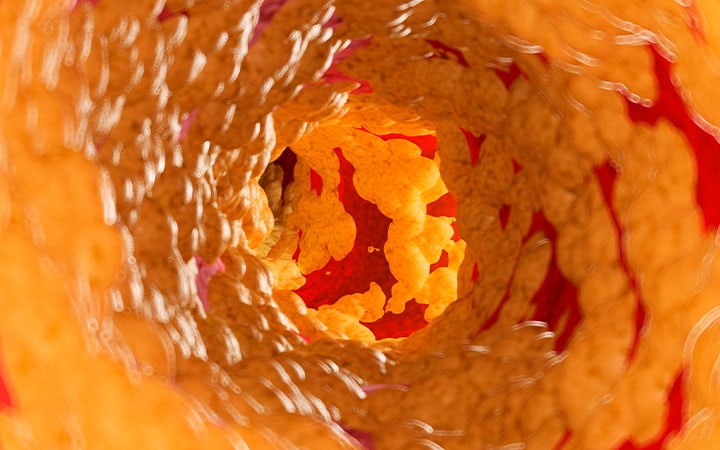There’s More to Heart Disease Risk Than Cholesterol
November 14, 2022

If you’ve had your cholesterol checked, you might wonder how important your cholesterol levels are for determining heart disease risk.
Your total cholesterol score is important mostly because it’s related to LDL cholesterol. LDL (low-density lipoprotein) is the “bad cholesterol” that contributes to plaque buildup in the arteries, which increases risk of heart disease and stroke. Your LDL and triglyceride levels (a type of fat) are the numbers doctors look at most closely on a cholesterol test, says University Hospitals interventional cardiologist Ian Neeland, MD.
But these numbers alone often are not enough to determine whether a patient should be on statins or other cholesterol-lowering medication, Dr. Neeland says. While a very high LDL number – 190 or above – would be enough to recommend statins, Dr. Neeland says doctors look at many other factors to guide decisions about treatment.
What Is the ASCVD Test?
ASCVD stands for atherosclerotic cardiovascular disease, which is the buildup of plaque in the arteries. The ASCVD risk assessment tool uses cholesterol, blood pressure, age, sex, race, smoking status and diabetes status to determine a risk score.
“We start with that as our foundation,” Dr. Neeland says. “The ASCVD risk will play into decision-making about statins, aspirin and blood pressure control. Sometimes it also is a factor in choosing other medications. But by and large, we focus on statin therapy.”
“We do know over decades of research that statins and other lipid-lowering therapies are very effective in reducing the risk for major vascular events, such as death from cardiovascular causes, heart attack, stroke, or needing a coronary stent or bypass surgery.”
Do Cholesterol Ratios Matter?
Cholesterol ratios have received a lot of attention. You calculate your ratio by dividing your total cholesterol by your HDL (high-density lipoprotein). HDL is the “good cholesterol” that protects against heart disease by removing LDL cholesterol from the blood.
So, if your total cholesterol is 200 and your HDL is 50, your ratio would be 4:1. A higher ratio is considered higher risk. However, Dr. Neeland says, cholesterol ratios are not recommended to understand your risk or guide treatment.
“There really is no significance for cholesterol/HDL ratios. You won’t find them in the guidelines. You won’t find them used in clinical trials,” he says. “It’s not recommended because it’s not useful and it could be misleading. People might say my ratio is good, so I don’t have to do anything about it. That’s not the way to think about it.”
Studies of HDL-raising drugs have shown no benefit in reducing risk of heart disease, Dr. Neeland says. “HDL is not a modifiable target that we shoot for. You can change it a little with weight loss and lifestyle changes, but that’s not a number we track,” Dr. Neeland says.
Where Does Cardiac Calcium Scoring Fit In?
Calcium scoring is heart scan that measures calcified plaque in the coronary arteries. It’s used to assess risk of developing heart disease.
Doctors may recommend calcium scoring for some patients who are at intermediate risk based on the ASCVD test assessment. A calcium score provides additional information to guide treatment decisions.
“For the average person, ASCVD and calcium scoring is enough to make a decision about preventive treatment,” Dr. Neeland says.
Related Links
The experts at University Hospitals Harrington Heart & Vascular Institute have the advanced training and experience to diagnose and treat all types of cardiovascular conditions, including hypertension. Our expertise ranges from the management of chronic diseases to the most complex open heart surgical procedures – and everything in between.


